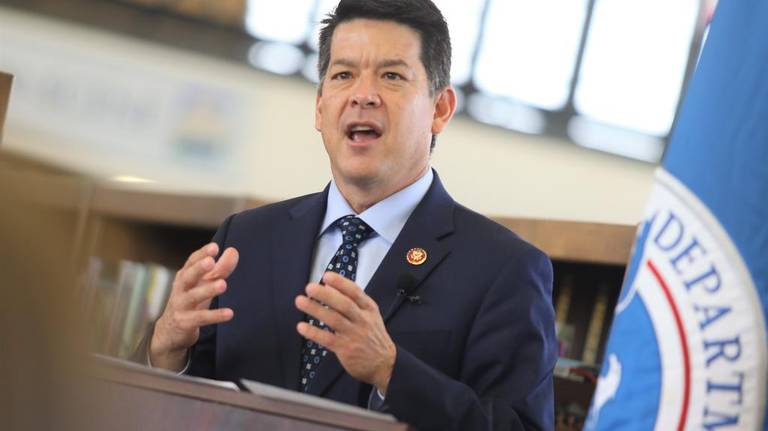Fresno Bee
Rural transportation and digitized records: How a California lawmaker is trying to help veterans
October 1, 2019
WASHINGTON — About 4.7 million U.S. veterans – a quarter of veterans – return to the U.S. and live in rural areas, and 58 percent of those veterans are enrolled in the Veterans Affairs health care system.
That can be problematic for some veterans who don’t have ready access to transportation. For example, in Rep. TJ Cox’s district, which extends more than 100 miles, there are only two VA medical centers in Fresno and Bakersfield. Veterans in the rural middle of the district could have to travel up to 50 miles to get medical attention at those VA facilities, a potentially difficult feat for someone who is disabled or is struggling financially.
So Cox, D-Fresno, and a bipartisan group of lawmakers are pushing to make $3 million per year to fund grants to help with rural veteran transportation permanent in a bill introduced Tuesday. The grants allow organizations to come up with more innovative ways to transport veterans in need.
“If we can’t get our most rural veterans to their medical appointments, we’ve failed the people who sacrificed to keep us safe,” Cox said in a statement. “I’m proud my colleagues and I are going to make this vital program permanent and predictable because our veterans earned this care and it’s our special duty to make sure the veterans in the most rural corners of our country get the same care as any others.”
The same group of lawmakers is pushing innovate veterans’ health care in another way – allowing digitized records to be treated as originals. That way, when veterans submit medical records to the VA they can do so digitally, hopefully saving on time devoted to paperwork.
The current backlog of medical paperwork at the VA that needs to be digitized would measure “approximately 5.15 miles high and contained at least 597,000 individual electronic document files dating back to October 2016,” according to an August inspector general report.
Cox called the current system “stuck in the 20th century.”
“With the recent backlog of Veterans claims sitting for months and/or years waiting for the review process at any stage is an unacceptable delay,” said JD Bennett, chairman of the Sanger Veterans Network, an advocacy group for veterans. “This bill is a great way to enhance and reduce the current wait times for claims or appeals to be processed.”
Read full article here: Fresno Bee

